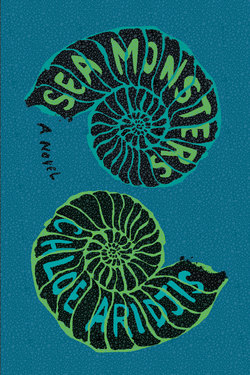Читать книгу Sea Monsters - Chloe Aridjis - Страница 11
На сайте Литреса книга снята с продажи.
ОглавлениеWHEN I WAS YOUNGER WE KEPT AN AQUARIUM, A slice of sea in a corner of my father’s study. It lived half in shadow since the curtains were kept semi-closed—too much sunlight encouraged algal bloom—and anyway, night was when it came alive. Whenever I couldn’t sleep I’d go sit and watch a hermit crab making the rounds and a clown fish zigzagging across the tank while others pulsed by in their silvery-blue waistcoats. During moments of extreme restlessness I’d be soothed by the fact that total inactivity did not exist, even at three in the morning there was something in motion, a plan being executed at the most micro of levels. Someone once said that the dream is the aquarium of the night, but to my mind night was the aquarium of the dream, with our visions framed within it.
And then came the moment when the last fish died. My mother standing over the tank trying to ladle it out with a green net. As I watched from a nearby sofa, all was unleashed and for an instant it felt like the entire universe was focusing on our home. The phone rang. A knock on the front door. The fax machine trilled. A caterwaul from our neighbor Yolanda’s house. Dogs howled from rooftops. Klaxons and sirens in the distance. Everything spoke at once, a collective dirge for the dead fish.
Whenever I felt disheartened or defeated I’d recall my father’s words, words he would repeat long after we’d stored the aquarium at the back of a closet and filled it with papers. Remember, he’d say, society is like a fish tank, only less beautiful to watch. The structure is not so different, however: here we have the shy fish who spend their lives hiding between the rocks, missing out on moments both important and trivial, then the gregarious types who crisscross the water in search of company or adventure, always on the move without knowing where they’re headed, and then the curious ones who hover close to the surface, first in line for food but also first should any hand or paw plunge in.
Yet his words lost meaning before the ocean, here there was no visible order or structure, only one great matriarch, vast and indifferent as a cathedral. And that indifference had to be reckoned with, it had to be measured and addressed if there was to be any interaction between humans and ocean. From my first day in Zipolite I noticed the system of flags—green, yellow, and red, each signaling a different strength of current, a code imposed on the ocean’s movements: the ocean produced waves and we responded with triangles of color that mediated between us, rising up like strange pointy flowers on tall poles in the sand. No farther in than your knees, some said, because like everything dead, this beach and its waves will try to suck you under.
I now imagined my parents plastering my image to lampposts, my face added to the missing-dog posters in our neighborhood. Se busca Azlán. Se busca Bonifacio. Se busca Chipotle. Each time I saw one I would fantasize about finding the animal—for the animal’s sake, for the owner’s sake, for the reward. But no image was permanent. These posters would start out vivid, inked with the owner’s nervous expectation, but as the days went by the hope and color would be drained from them and one morning they’d be torn down by a man in overalls who went around removing expired notices. Some of the animals I recognized but others must have spent their entire lives indoors; I had a pretty good sense of most of the dogs in La Roma, many of whom were brought to the park to run, others taken out by the neighborhood dog walker. Other sights: a pair of Rottweilers jumping up and down behind the wire mesh of their gate, two dark masses springing as if on a trampoline, fiercely guarding the only territory they knew, and our local priest, who would change into sneakers at night and walk his white Maltese through the dirty streets.
The dogs in Zipolite may have been safe from city woes, yet all day long they wandered up and down the beach as if scavenging for something not provided by the landscape. They took the beach’s temperature, gauged its mood, sussed out every new arrival. A ragbag of breeds, none were one solid color but rather a patchwork of two or three tones. Some had faces like masks, pure black interrupted by a tan snout or a set of golden eyebrows, others resembled wolves or oversized cats. One had a splash of German Shepherd though he was much smaller in size and nowhere near as regal; these dogs were more like courtiers, but even among courtiers there must be a king, and the leader of the pack, as far as I could tell, was this unabashed Shepherd mongrel, average in height but lofty in carriage, whom the others followed around and turned to for cues.
From early on I noticed the dogs didn’t take to Tomás. They would avoid him and snarl when he came too close. Yet he didn’t pay much attention, and when they first approached—after all, we were new scents on the beach—he yelled ¡Lárguense! and kicked the air near their heads. I’d often share my snacks with them, whatever I happened to have, which was never very much, and as a result the motley congregation would come sit by my side. How had I ended up in Zipolite preferring the company of these dogs to that of the person I’d run away with, I’d ask myself, while the sea continued to write and erase its long ribbon of foam.
